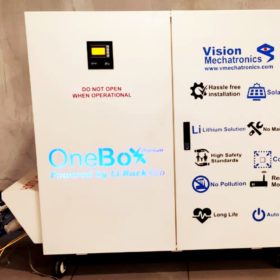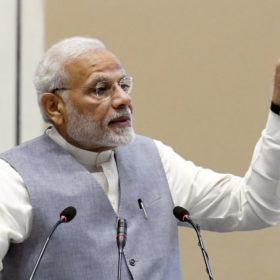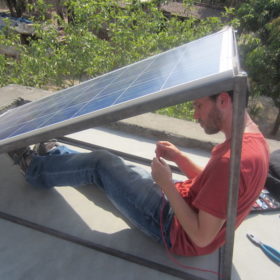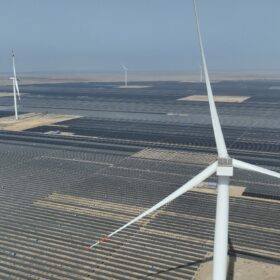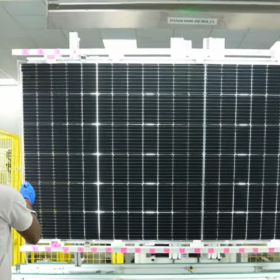Speeding up energy storage with pseudocapacitors
Scientists at Germany’s Helmholtz Zentrum Berlin have made a discovery they say could greatly increase the energy storage capacity of titanium-based ‘MXene’ pseudocapacitors, ultimately leading to faster-charging batteries. The group found adding urea molecules between MXene layers increased the material’s storage capacity by up to 56%.
A plug-and-play solar-powered battery back-up solution for the home
The OneBox, from Indian manufacturer Vision Mechatronics, consists of a lithium battery, hybrid inverter and solar charge controller to give a hassle-free solution for electricity back-up during power outages. Solar rooftop owners are offered a grid feed feature to maximize net metering income from any excess power generated.
Large scale storage still some way off
Consultancy Bridge to India has looked into its crystal ball to predict India will add 10 GW of solar capacity this year and the same next year before deployment slows to 7 GW per year in 2022 and 2023, dogged by hurdles such as an inexplicable ongoing demand for new coal-fired power plants.
US based Triton Solar buys stake in startup Ushva Clean, JV to launch electric car
Leveraging Triton Solar’s battery technology and Ushva’s experienced team from IIT Bombay, the strategic alliance aims to develop one-of-a-kind car with the longest travel range on a single charge and unique user experience.
Balancing the renewable energy intermittency
Annual renewable energy balancing between resource-surplus and resource-deficit states can help solve DISCOM woes while ensuring their compliance to renewable purchase obligations.
EVs: India lacks authorized Lithium-ion battery recycling facilities
Any proponent can install such facility in the country, said Minister of State for Environment, Forest And Climate Change, noting that technologies are available for complete recycling of lithium batteries to recover valuable metals.
India’s lithium-ion battery imports increase fourfold in two years
China, Hong Kong and Vietnam are the top three nations exporting batteries to India. Chinese imports were worth $773 million in the last fiscal year with Hong Kong shipping $267 million worth and Vietnam $114 million, according to the Ministry of Commerce.
AEPPL to invest Rs37.15 billion in second phase of lithium battery plant
The joint venture between Japanese majors Toshiba, Denso and Suzuki will make the investment in the Gujarat plant over the 2021-25 period, having pumped Rs12.5 billion into the first phase of development.
Coupling pumped hydro with renewables and other storage technologies
The combination of pumped hydro with other storage technologies can increase renewables penetration, improve operational safety and reduce maintenance costs at large-scale hydropower plants, according to new research. The study also focuses on techniques to determine the optimal size of renewables-based pumped hydro storage systems. Costs for hybrid solar-pumped hydro projects currently range from $0.098/kWh to $1.36/kWh.
ADB extends $250 million loan to EESL for energy efficiency initiatives
The investment—part of a $592 million assistance package—will be used to promote adoption of smart meters, distributed solar photovoltaic systems and e-vehicles in India.

